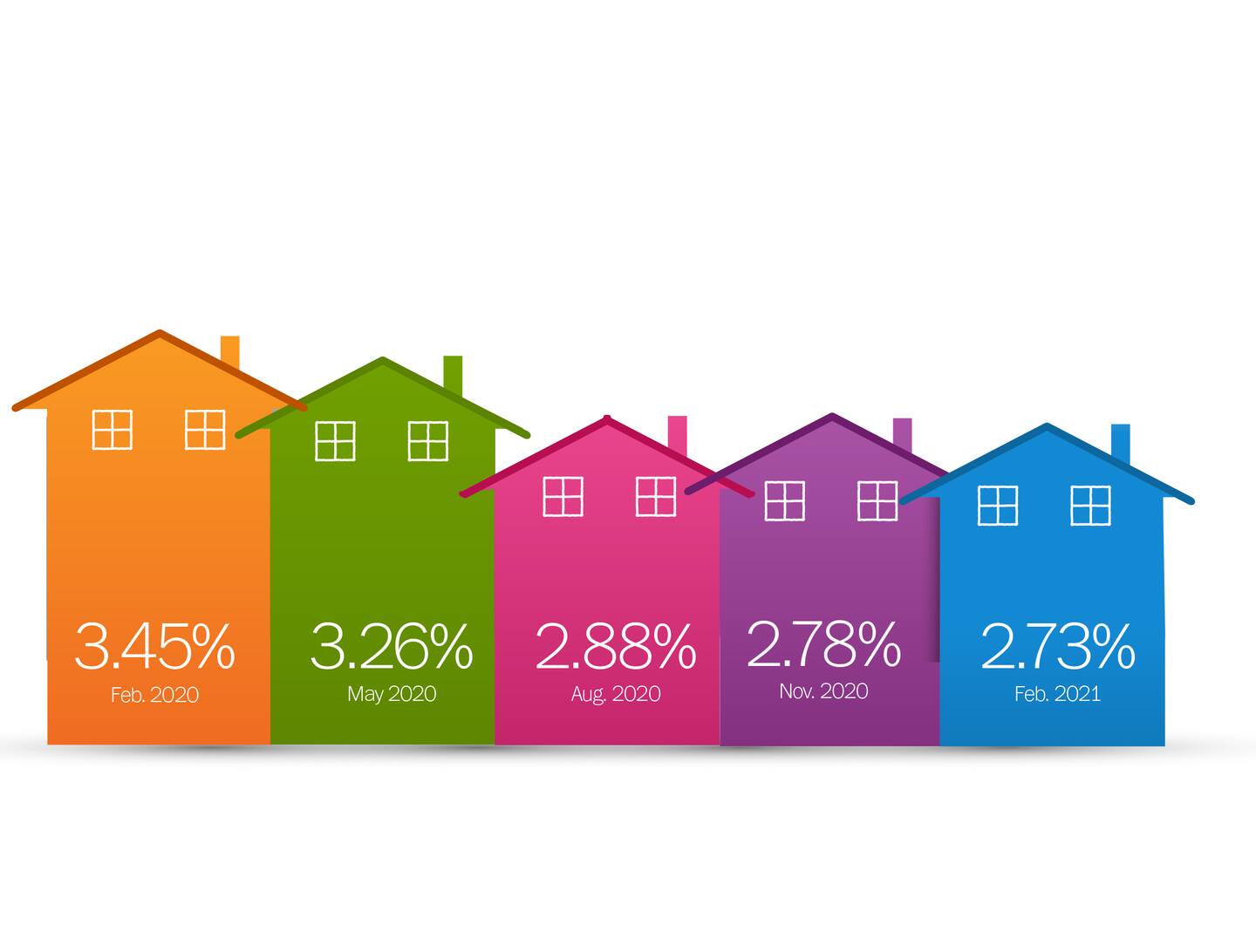Uncertainty surrounding economy holds mortgage rates in place

Freddie Mac, the federally chartered mortgage investor, aggregates rates from about 80 lenders across the country to come up with weekly national average mortgage rates. It uses rates for high-quality borrowers with strong credit scores and large down payments. These rates are not available to every borrower.
Because the survey is based on home purchase mortgages, rates for refinances may be different. This is especially true since the price adjustment for refinance transactions went into effect in December. The adjustment is 0.5 percent of the loan amount (e.g., it is $1,500 on a $300,000 loan) and applies to all Fannie Mae and Freddie Mac refinances.
The 15-year fixed-rate average edged up to 2.21 percent with an average 0.6 point. It was 2.20 percent a week ago and 2.97 percent a year ago. The five-year adjustable rate average slid to 2.78 percent with an average 0.3 point. It was 2.80 percent a week ago and 3.32 percent a year ago.
“Economic data and pandemic-related developments paint a conflicting picture of the economy’s path forward,” said Matthew Speakman, a Zillow economist. “Bond yields, which generally dictate the course of mortgage rates, have risen steadily for the better part of the last few months — and while the longer-term trajectory for yields and rates is almost certainly upward, the near-term outlook is currently at a bit of an impasse.”
The yield on the 10-year Treasury rose to 1.15 percent on Wednesday, its highest level in three weeks. Mortgage rates usually follow the same path as long-term bonds, but that hasn’t been the case lately because of the Federal Reserve’s actions in the market. Since early in the pandemic, the Fed has been buying $120 billion in bonds each month, which has held down mortgage rates.
“The pandemic and its impact on the economy are currently driving the Federal Reserve’s monetary policy and rate stimulus,” said Michael Blake, president of capital markets at Fairway Independent Mortgage. “The Fed is using interest rates as a lever by buying bonds and mortgage-backed securities to keep rates low to stimulate the economy during the pandemic.”
At its last meeting, the Fed signaled it will continue buying bonds in the near term and will not consider tapering its purchases until the economy is on better footing. The Fed’s ongoing intervention in the market will probably hold down rates, but Blake anticipates they will rise slowly as vaccinations become more widespread.
“We should expect rates to increase moderately, but remain relatively low, as a significant portion of the population is vaccinated, the effects of the pandemic lessen, the economy recovers and things start to return to the new normal,” he said.
Bankrate.com, which puts out a weekly mortgage rate trend index, found half of the experts it surveyed predicted rates would rise in the coming week, while about 40 percent expected them to remain about the same.
“We have had some very positive data on our battle versus covid-19,” said Logan Mohtashami, housing analyst at HousingWire. “Cases, while still very high, are collapsing, and hospitalization data is falling as well. Vaccination data is picking up steam as well, with good data on the vaccine. The next stage of our economy recovering is being able to walk the earth freely. This in time should send the 10-year yield above 1.33 percent. … This is the most pro-America economic tracking data line we have, bond yields rising.”
Meanwhile, after a couple of weeks of declines, mortgage applications picked back up last week. According to the latest data from the Mortgage Bankers Association (MBA), the market composite index — a measure of total loan application volume — increased 8.1 percent from a week earlier. The purchase index was essentially flat, ticking up 0.1 percent from the previous week. It was 16 percent higher than a year ago. The refinance index jumped 11 percent and was 59 percent higher than a year ago. The refinance share of mortgage activity accounted for 71.4 percent of applications.
“Tremendous demand for refinancing continues in early 2021, with activity last week jumping to a high not seen since last March,” said Bob Broeksmit, MBA president and CEO. “With mortgage rates expected to slowly rise above 3 percent later this year, many borrowers are acting now. Increasing home sales and prices amidst tight inventory continue to drive purchase loan amounts higher. Purchase applications outpaced year-ago levels by an impressive 16 percent, with average loan amounts for conventional, FHA and VA loans all setting new MBA survey records.”






